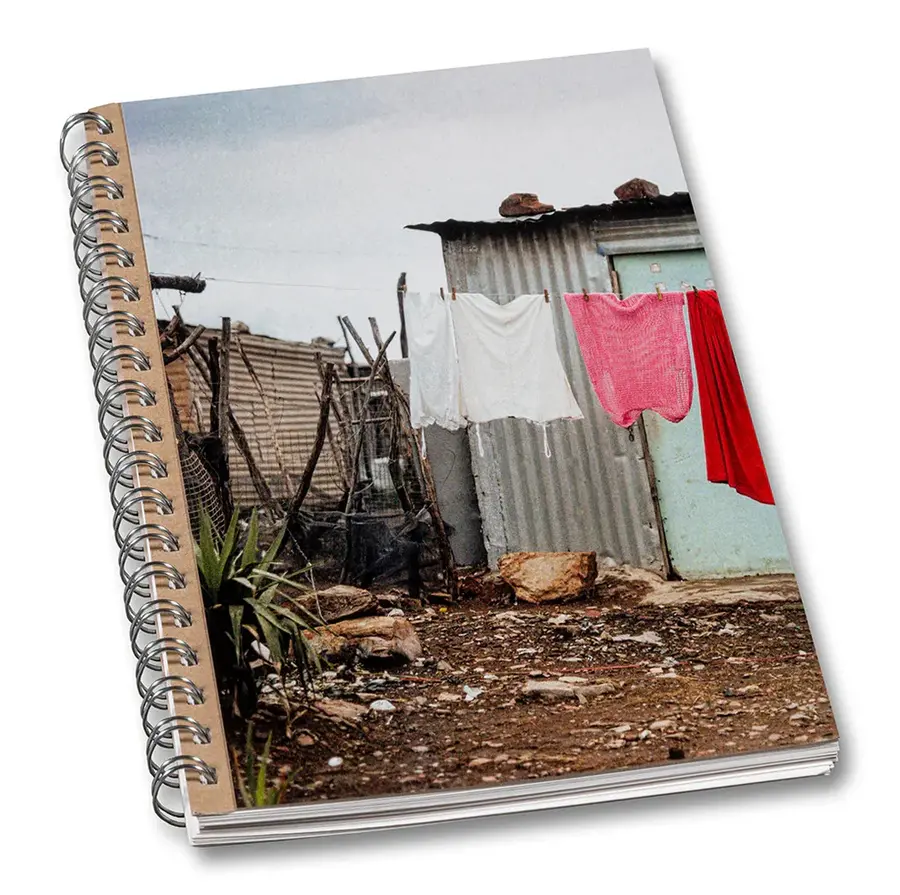Explore deeper
Artist and researcher, Florenza Deniz İncirli, responds to Lindokuhle Sobekwa’s shortlisted photobook, 'I carry Her photo with Me'.
Read full responseDon't miss your chance to visit Boris Mikhailov: Ukrainian Diary, Zofia Rydet: Sociological Record and Strike a Pose! 100 Years of the Photobooth before they close!
"This is such a huge honour. I’ve looked up to the people who have received the Prize before so this is such a milestone. Given our times I think it’s such an important place to be a photographer and a storyteller in South Africa."
Lindokuhle Sobekwa
The deeply personal project began when Sobekwa found a family portrait with his older sister Ziyanda’s face cut out. It remains the only photograph he has of her. One day when the siblings were seven and thirteen, she chased him and he was hit by a car and badly injured. She disappeared hours later, only returning a decade later, ill. By this time Sobekwa had become a photographer. He tried to take her portrait, but stopped when she reacted angrily. Ziyanda died soon after.
I carry Her photo with Me combines photographs, handwritten notes and family snapshots. Through this scrapbook-like publication Sobekwa explores the memory of his sister and the wider implications of such disappearances – a troubling part of South Africa’s history. The work is part of his wider practice on fragmentation, poverty and the long-reaching ramifications of apartheid and colonialism across all levels of South African society.
More about Lindokuhle Sobekwa
Lindokuhle Sobekwa (b, 1995, South Africa) is a South African photographer born in in 1995 in Katlehong, Johannesburg. He was introduced to photography in 2012 through the Of Soul and Joy Project in Buhlebuzile high school in Thokoza township, where his photography mentors included Bieke Depoorter, Cyprien Clement Delmas, Thabiso Sekgala, Tjorven Bruyneel and Kutlwano Moagi. In 2013 Sobekwa joined Live Magazine as a part-time photographer. He has exhibited work at Kalashnikow Gallery in South Africa and with No Man's Art Gallery in from the Netherlands and in their pop-up exhibitions in South Africa, Iran, and Norway. In the past year his work has been shown internationally at Paris Photo by both Goodman Gallery and Magnin-A gallery. Sobekwa joined Magnum Photos in 2018 and became a full member in 2022. He has undertaken assignments in Kenya and South Africa, as well as giving lectures about his work and photography in South Africa internationally.
Artist and researcher, Florenza Deniz İncirli, responds to Lindokuhle Sobekwa’s shortlisted photobook, 'I carry Her photo with Me'.
Read full responseEmploying a scrapbook aesthetic with handwritten notes, I carry Her photo with Me is a means for Sobekwa to engage both with the memory of his sister and the wider implications of such disappearances – a troubling part of South Africa’s history. The book complements his wider work on fragmentation, poverty, and the long-reaching ramifications of apartheid and colonialism across all levels of South African society.
Buy your signed copy now!
